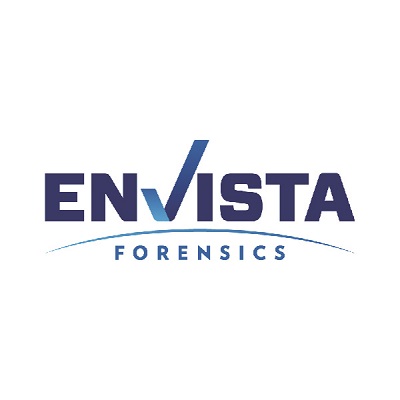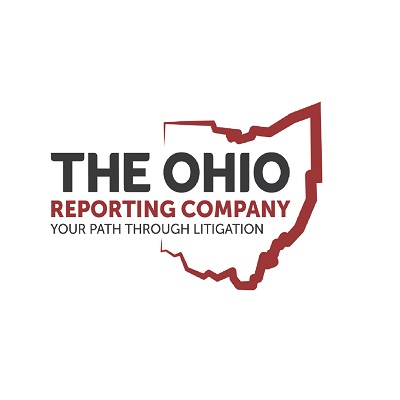Recent OACTA Amicus Briefs
Estate of Price v. Kidney Care Specialist | Mar 21, 2025
When can a juror be rehabilitated and when should they be disqualified under R.C. 2313.17(B)(9)?
John Paganini v. The Cataract Eye Center of Cleveland | Mar 18, 2025
Whether the medical-claim cap on noneconomic loss for catastrophic injuries is constitutional under the “due course of law” provision in Article I, Section 16 of the Ohio Constitution?
One Church v. Brotherhood Mutual Insurance Company | Mar 17, 2025
In One Church, OACTA asked the Court to reverse the Tenth District Court of Appeals, and find an insured’s assertion of “hidden damages,” after accepting payment of an appraisal award, does not allow an appraisal to be set aside.
Kurt Steigerwald v. City of Berea | Jan 13, 2025
In Steigerwald, OACTA asks the Court to find that using non-defective equipment for a governmental purpose (a locker room bench) is not a “physical defect” that can result in a loss of political subdivision immunity under R.C. 2744.02(B)(4).
Jose Galvan Camara v. Gill Dairy, LLC | Aug 6, 2024
Must an employee prove, in addition to the employer having mere knowledge of a missing safety guard, that the employer, besides doing nothing, made a deliberate decision not to replace the guard in order to establish a deliberate removal of R.C. 2745.01(C)?
Estate of Rose Crnjak v. Lake Health System, Inc., S. Ct. | Jul 8, 2024
Whether a court-appointed personal representative is the only person with standing to sue on behalf of a decedent’s estate.
Melissa Eddy v. Farmers Property Casualty Insurance Company | May 7, 2024
Boone v. Vanliner Ins. Co., 91 Ohio St.3d 209, 744 N.E.2d 154 (2001) does not apply to an insurer’s privileged materials created during litigation between the insurer and its insured
Jennifer Ackman v. Mercy Health West Hospital LLC | Feb 20, 2024
Does a party waives its Civil Rule 12(b)(4) and (5) service defenses through sufficient participation in the litigation?
Estate of Katherine Tomlinson v. Mega Pool Warehouse Inc and Stephen B. Gold | Mar 13, 2023
Are Residential remodeling services exempted from the definition of “consumer transaction” under the Ohio Consumer Sales Practices Act? Does the Ohio Home Construction Service Supplier Act, rather than the Ohio Consumer Sales Practices Act, apply to a transaction involving the remodeling of an existing residential building?
Allison Harris v. Dustin Hilderbrand | Jan 10, 2023
Does immunity apply to an off duty K9 handler for claims of negligence and strict liability?
Kathleen McCarthy v. Peter K. Lee, M.D. | Nov 29, 2022
Whether a derivative claim falls with the primary claim when the primary claim fails as a matter of law.
TruNorth Warranty Programs of North America v. AJZ's Hauling, LLC | Nov 15, 2022
Whether an order in one case can be collaterally attacked in another case on the theory that it is "unjust" and, if so, whether a trial court must hold an oral hearing before ruling on a motion to compel arbitration when a party requests a hearing.
Gibson Bros. Inc v. Oberlin College | May 16, 2022
Proposition of Law No. III: A jury cannot consider an issue again when jurors give an interrogatory answer that is clear and consistent with the verdict. R.C. 2315.21(B)(2) does not authorize a jury to revisit in stage two of a bifurcated trial any issue resolved in stage one that also relates to liability or compensatory damages. II. Proposition of Law No. IV: R.C. 2315.21 limits punitive damages to twice the recoverable compensatory damages awarded to a plaintiff from a defendant. Because R.C. 2315.18(E)(1) limits recoverable noneconomic loss to a capped amount, and R.C. 2315.18(F)(1) prevents a judgment over that amount, capped punitive damages are derived from capped compensatory damages
Austin Krewina v. United Specialty Insurance Company | Mar 25, 2022
Proposition of Law: Liability insurance exclusions and limitations for harm arising from assault and battery or abuse are subject-matter provisions that are triggered when an ordinary person would believe that assault and battery or abuse had taken place rather than by the subjective intent of the assailant.
Amanda Brandt v. Roy Pompa | Nov 24, 2021
Whether R.C. 2315.18's cap on noneconomic damage is unconstitutional on its face or as applied to minor victims of sexual assault.
Orlando P. Hudson v. Greater Cleveland Regional Transit Authority | Oct 28, 2021
Whether attorney-client privilege communications can be disclosed to an employee within the scope of employment who has a reason to know the privileged information, despite the employee being personally adverse to the employer, without waiving the privilege?
Michael Walling, Adminstrator of the Estate of Raeann Walling, Deceased v. The Toledo Hospital | Sept 7, 2021
Whether negligent credentialing can exist without a prior adjudication or stipulation that the physician was negligent.
Shanell Goree v. Northland Auto Enterprises, Inc. et. Al | Mar 8, 2021
Proposition of Law II: Inducement and reliance are essential elements of any fraud claim and may only be presumed on a class-wide basis where legally mandated written disclosures are shown to have been intentionally and uniformly omitted on a class-wide basis. Proposition of Law III: Part of the rigorous analysis required for class certification is analysis of the merits of the claims presented as to the existence of indvidualized essential elements of the claims and individualized damages.
AKC, Inc. v. United Specialty Ins. Co | Sept 8, 2020
Whether the standard water backup and pollution exclusions in a first-party property insurance policy bar loss caused by or resulting from raw sewage.
Timothy A. Weeks v. 203 MAIN STREET, LLC dba MOSEY INN, et al., v. OHIO RESTAURANT INVESTMENT OF WELLINGTON. LLC | Dec 19, 2019
Whether a forensic toxicologist’s opinions can create an issue of fact on the bartender’s actual knowledge of noticeable intoxication under Ohio’s Dram Shop Act.
Menoah Park Center for Senior Living v. Irene Rolston | Nov 15, 2019
Whether Ohio should adopt HIPAA privacy regulations and create an exception to Biddle v. Warren General Hospital for a limited disclosure of health information that occurs for the purpose of collecting a medical debt.
Malieka Evans v. Akron General Medical Center ET AL. | Aug 19, 2019
Proposition of Law No. 1: If no viable cause of action exists against an employee, such that an employee can no longer be found liable for an alleged wrong, a plaintiff cannot maintain a cause of action against an employer for negligent hiring, supervision, or retention. Certified Question No. 2: Does the language of Strock v. Pressnell, 38 Ohio St.3d 207, 217, 527 N.E.2d 1235 (1988) require that a plaintiff show the liability of an employee in order to maintain a negligent hiring, supervision, or retention action against an employer?
|








